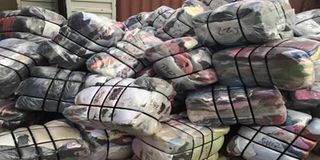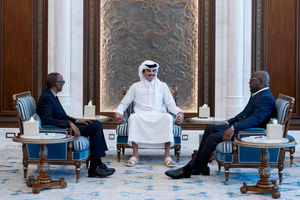Boost manufacturing before banning ‘mitumba’

Despite the well-publicised ban, by the Tanzania Bureau of Standards (TBS), of innerwear early last year, that hasn’t been implemented and it is business as usual—very openly!. PHOTO/FILE
What you need to know:
We deliberately use the qualifier, “on the outset,” for we dread the idea of banning imports just to end up with a majority of our people going about semi-naked for lack of affordable apparel to cover their bodies!
It is in the news again. Second-hand imports must be proscribed in East Africa in a bid to promote local industries. Targeted for banning are clothing, leather goods and vehicles.
On the outset, this is good news indeed, for it means, for instance, the revival of Tanzania’s virtually dead textile industry.
We deliberately use the qualifier, “on the outset,” for we dread the idea of banning imports just to end up with a majority of our people going about semi-naked for lack of affordable apparel to cover their bodies!
Tanzania must industrialise if it is to become a middle income economy by 2025, but that cannot happen if we allow our region to remain the dumping ground of other countries’ products.
The distaste towards second-hand material is as old as the history of trade, for there is something denigrating about wearing clothes that somebody else had used, unless it is given as a gift by somebody one knows and admires.
But then, that should exclude innerwear, for sharing underclothing is scornful in virtually all cultures across the world!
Despite the well-publicised ban, by the Tanzania Bureau of Standards (TBS), of innerwear early last year, that hasn’t been implemented and it is business as usual—very openly!
It is our hope that the drive being pushed by the EAC Heads of State will be pursued with the seriousness it deserves, for it is founded on the desire to revive our textile industries.
Tanzania, just like Uganda, has enough cotton to dress the whole of the EAC bloc and beyond, but lack of good policies have seen textile factories collapse, one after another.
And then, banning second hand import shouldn’t mean having the market flooded by cheap new apparels from the Far East or elsewhere. East Africans should be wary of these too, for we all should be dressed by clothing material made in East Africa, by East Africans.




